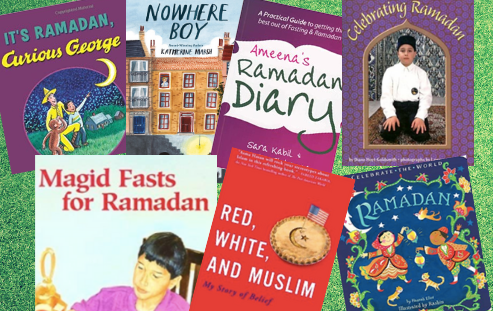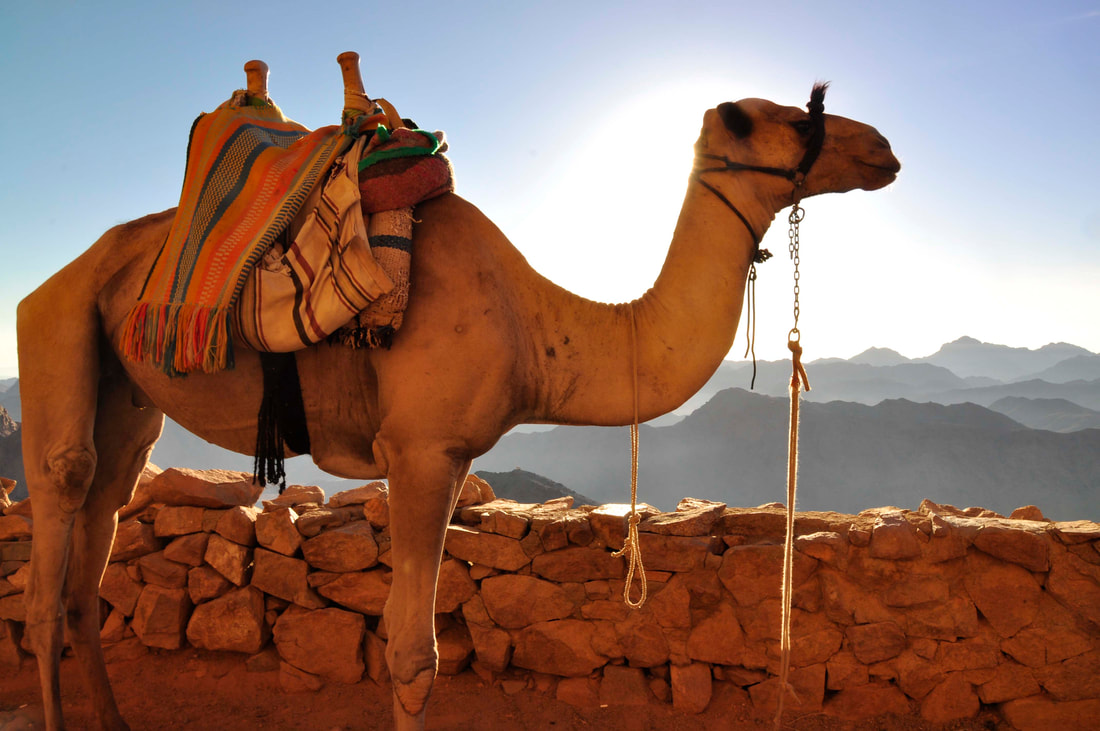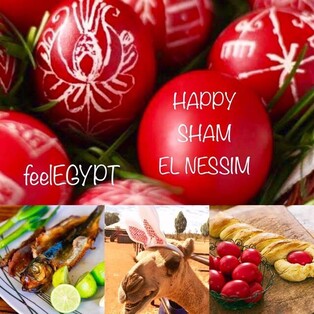 Buds and blossoms, colored eggs and spring breezes are thankfully not susceptible to COVID-19 and the new season is bursting around much of the world. Today – Monday, April 20, 2020 – is the Spring Festival in Egypt: Sham El Nessim. عيد شم نسيم سعيد عليكم (Happy sham el nessim to you) Spring has been celebrated in Egypt since ancient times, when Egyptians offered salted fish, lettuce and onions to their deities – and these are still the symbolic foods of the season. Dr. Mohamed Ibrahim Bakr, former chairman of the Egyptian Antiquities Authority, explains that: "The spring festival coincided with the vernal equinox, and the ancients imagined that that day represented the beginning of creation. The date of Sham El Nessim was not fixed. Rather, it was announced every year on the night before the feast at the foot of the Great Pyramid. The feast of 'Shamo,' means 'renewal of life' which was later corrupted during the Coptic age to 'shamm' (smelling or breathing) and the word 'nessim' (breeze) was added. The ancient Egyptians first celebrated the feast of Shamo in 2700 BC…” 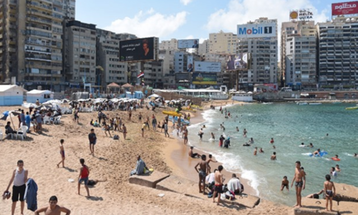 EgyptToday by Jacqueline Mounir EgyptToday by Jacqueline Mounir .In modern times, Sham El Nessim is celebrated on the Monday after Coptic/Orthodox Easter but it is not a religious celebration. Families gather for picnics, short vacations, trips to the beach – Alexandria, Egypt, would look like this. Until this year, when the government closed all beaches, gardens and tourist villages because of coronavirus spread. Once again the tourism industry in Egypt has been hard hit – although now, as with so many other aspects of our lives – we can keep on touring, celebrating and learning online – and of course, sharing cultures and traditions. The Bibliotheca Alexandrina is active on social media, including its YouTube Channel. The Egyptian Ministry of Tourism and Antiquities is launching virtual tours of tombs and other wonders of ancient Egypt. Today I want to share links and resources to the best children’s books from a wide variety of faiths, ethnic groups and nationalities. What a perfect opportunity to encourage children (and their parents) to explore literature from their own background or someone else’s: books as mirrors and windows. Let’s first open the window on Ramadan, the major Muslim month of fasting that begins approximately April 24 this year (with the first sighting of the crescent moon). Muslims fast from dawn to sunset, typically beginning when they are in early teens, although younger children may begin fasting for a few days or hours. The month celebrates the moment when the Prophet Mohammed first began receiving the Quran, Islam’s holy book. The month includes acts of charity and the joyous end of the fast each day, called iftar, features special foods. Ramadan ends with a three-day feast/festival called Eid el Fitr. 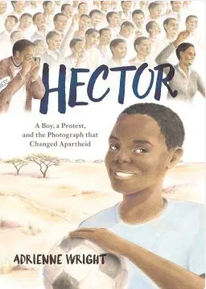 April is also Arab American Heritage Month. Salaam Reads is an imprint of Simon & Schuster focused on books about Islam and young Muslims. KitaabWorld is an online platform focused on Muslim children’s literature from South Asia. The Horn Book Magazine recently featured a conversation about “We Need Diverse Jewish and Muslim Books,” including a list of recommended interfaith books. The Arab American Book Award is presented by the Arab American National Museum in Dearborn, Michigan. The children’s literature award in 2019 went to Egyptian American Today show host Hoda Kotb for I’ve Loved You Since Forever. Two young Muslim sisters in Michigan created "Girls of the Crescent" to identify books with Muslim main characters and donate them to schools and libraries. Lee and Low, the largest multicultural publisher in the U.S., has a Cultures section on its website. Multicultural Children's Book Day (January 29, 2021) offers a variety of online resources and teaching kits. The 28th annual Children’s Africana Book Awards were recently announced. The top winner is from South African author Adrienne Writer – Hector: A Boy, A Protest and the Photograph that Changed Apartheid. “While the details of Hector’s life help readers realize that he was just a regular boy who didn’t deserve to die under this unjust system of segregation, this portrayal of the protesting teens also emphasizes how much power children can have when they stand up for their rights,” from the Kirkus starred review. The best children’s books for many ethnic groups are identified each year with awards. Here are the current winners, check the lists for honor books and past winners - 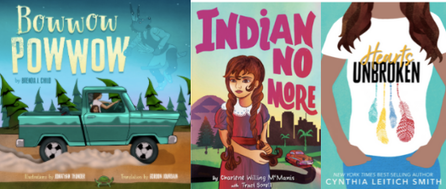 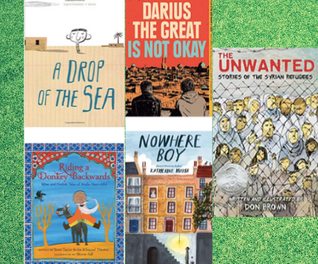 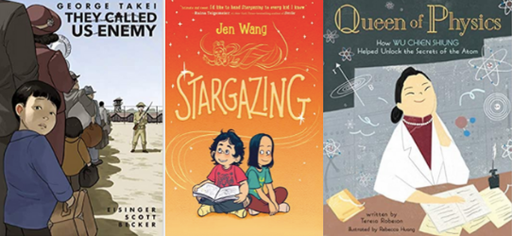 Asian Pacific American Award for Literature (APALA) 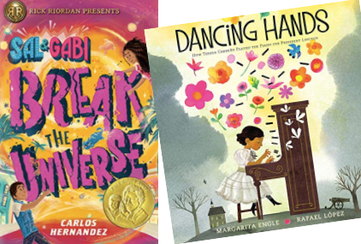 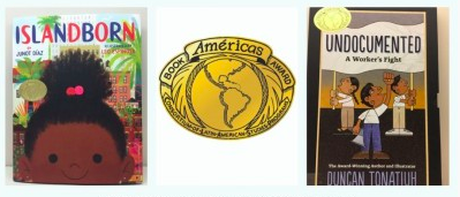 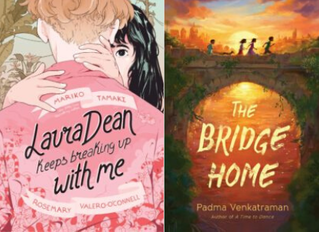 Hans Christian Anderson Award - 2020 winners to be announced May 4 – Jacqueline Woodson is on the short list for 2020. This is the highest international recognition give to an author or an illustrator whose books have made a lasting contribution to children’s literature United States Board on Books for Young People (USBBY) 2020 Outstanding International Books List (winning books come from Portugal, Switzerland, Chile, Korea and many more – presentation about the winners here) Many of the celebrations for this year’s award winners have been cancelled or postponed because of COVID-19 but the books are all waiting to be savored, opening doors to new adventures and dreams, knowledge and hope. It’s time for new adventures! Please share additional resources, awards
or comments on specific winning titles. |
Karen Leggett AbourayaArchives
April 2024
Categories |
BOOKS |
RESOURCESLibraries Around The World
For Young Writers For Educators and Librarians Contact karen@handsaroundthelibrary.com |
© COPYRIGHT 2020. ALL RIGHTS RESERVED.
|
